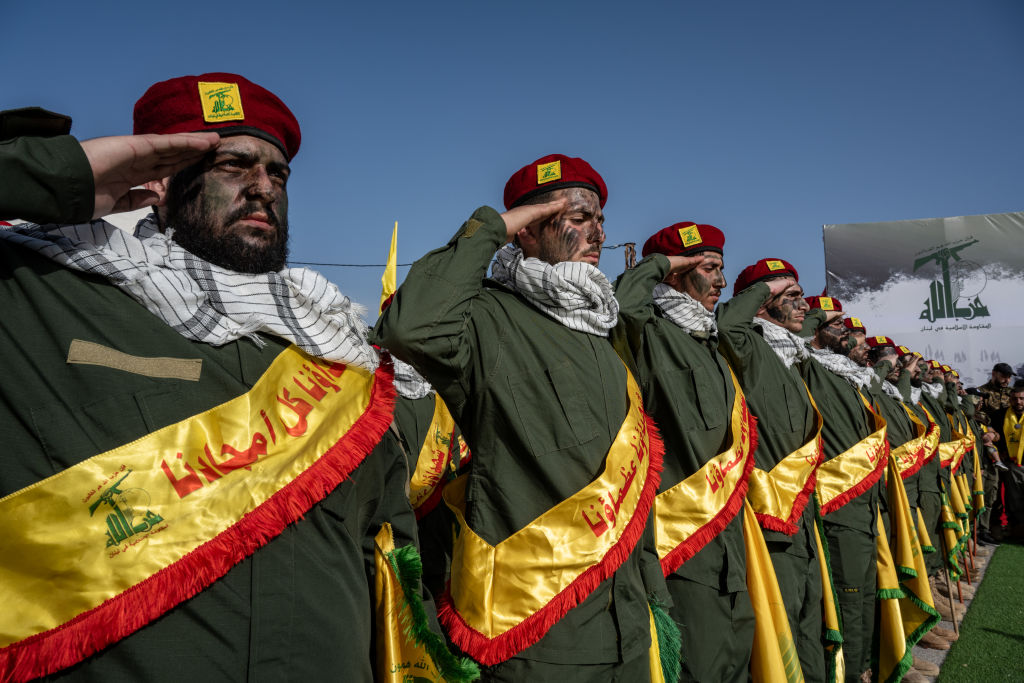As one war closes, is another just beginning? The conflict in Gaza is seemingly winding towards an inconclusive end, with Washington accelerating pressure on both sides to accept a peace deal, and now regional and global attention is shifting to Israel’s northern border with Lebanon, where months-long but carefully managed border clashes have escalated in recent weeks. As the analyst Nicholas Noe observes, “Hezbollah’s heaviest political and strategic blow has been — for the first time since 1948 — forcing the Israelis to create a ‘buffer zone’ on their own territory and not on that of their opponent.”
According to the Lebanese daily al-Akhbar, which is close to Hezbollah, British officials this week warned the Lebanese government to prepare for an Israeli offensive starting in mid-June. Visiting the site of devastating wildfires in northern Israel caused by Hezbollah shelling, Prime Minister Benjamin Netanyahu declared that “we are prepared for very intense action in the north,” with IDF Chief of the General Staff Herzi Halevi asserting that Israel’s armed forces possess “strong defence, readiness to attack, [and] we are approaching a decision point”. More stridently, Netanyahu’s far-Right National Security Minister Itamar Ben Gvir told cameras that because “they’re burning [us] here [in the north]… all Hezbollah strongholds should be burned, they should be destroyed. War!”
Yet while Israel calls up its reserves and trains brigades for an invasion, both America and the IDF itself are urging caution. According to an Axios report, while the IDF presented Israel’s war cabinet with several options, “including a ground invasion aimed at pushing Hezbollah’s elite Radwan force away from the border”, any expansion of the current conflict would, in the words of one unnamed IDF official, have “huge implications for Israel” while achieving limited results. The official added: “We need to understand this before making decisions.”
According to the Left-wing Israeli daily Haaretz, “the IDF fears that the public is not aware of the implications of a broad war in the northern sector for the home front.” The Biden administration is equally sceptical, warning that Israel’s desire for a limited war may be unattainable, potentially dragging in Iran as well as Hezbollah’s allied regional militias in Iraq, Yemen and Syria.
Certainly, Hezbollah presents a much greater challenge for the IDF than Hamas. Israel’s military record against the group is poor — both the 18-year occupation of Southern Lebanon and the 2006 war saw the IDF withdraw with heavy casualties and Hezbollah more strongly entrenched than before — and Hezbollah’s capabilities have dramatically increased since then. Its recent strategy of striking IDF listening posts and early warning systems on the border is, as well as a warning to Israel, a means to punch holes in the country’s Iron Dome system, increasing the risk posed by the group’s vast stockpiles of medium-range missiles, capable of striking central Israel.
In the view of the academic Amal Saad, an expert on Hezbollah, the group “seems to be betting that all of these threats and manoeuvres amount to little more than sabre-rattling because it knows Israel is in a much weaker position than it has ever been to launch such a war”.
Israel is already running out of diplomatic road, while the IDF’s capacity to simultaneously fight Hamas in Gaza and Hezbollah in the north looks increasingly doubtful. To shift its attention to Lebanon, the IDF will likely have to abandon notions of occupying Gaza, leaving a battered Hamas to claim a costly, perhaps pyrrhic victory. Ironically, then, ending the Gaza War is both the precondition that Hezbollah’s leader, Hassan Nasrallah, has declared is necessary to halt his group’s clashes with Israel and the essential precondition for Israel to invade Lebanon.
If Hezbollah’s recent uptick in attacks is an example of “escalating to de-escalate”, Israel will paradoxically be forced to de-escalate to escalate, with preparation for war creating a window for peace the struggling Biden administration is certain to exploit. As Israel’s War Cabinet member Benny Gantz remarked recently, the crisis on the Lebanese border will be resolved by autumn “whether by [diplomatic] arrangement or [military] escalation”. In navigating these paradoxes, the chances of a wider war and a sudden, fragile outbreak of peace hang equally in the balance.











Join the discussion
Join like minded readers that support our journalism by becoming a paid subscriber
To join the discussion in the comments, become a paid subscriber.
Join like minded readers that support our journalism, read unlimited articles and enjoy other subscriber-only benefits.
Subscribe